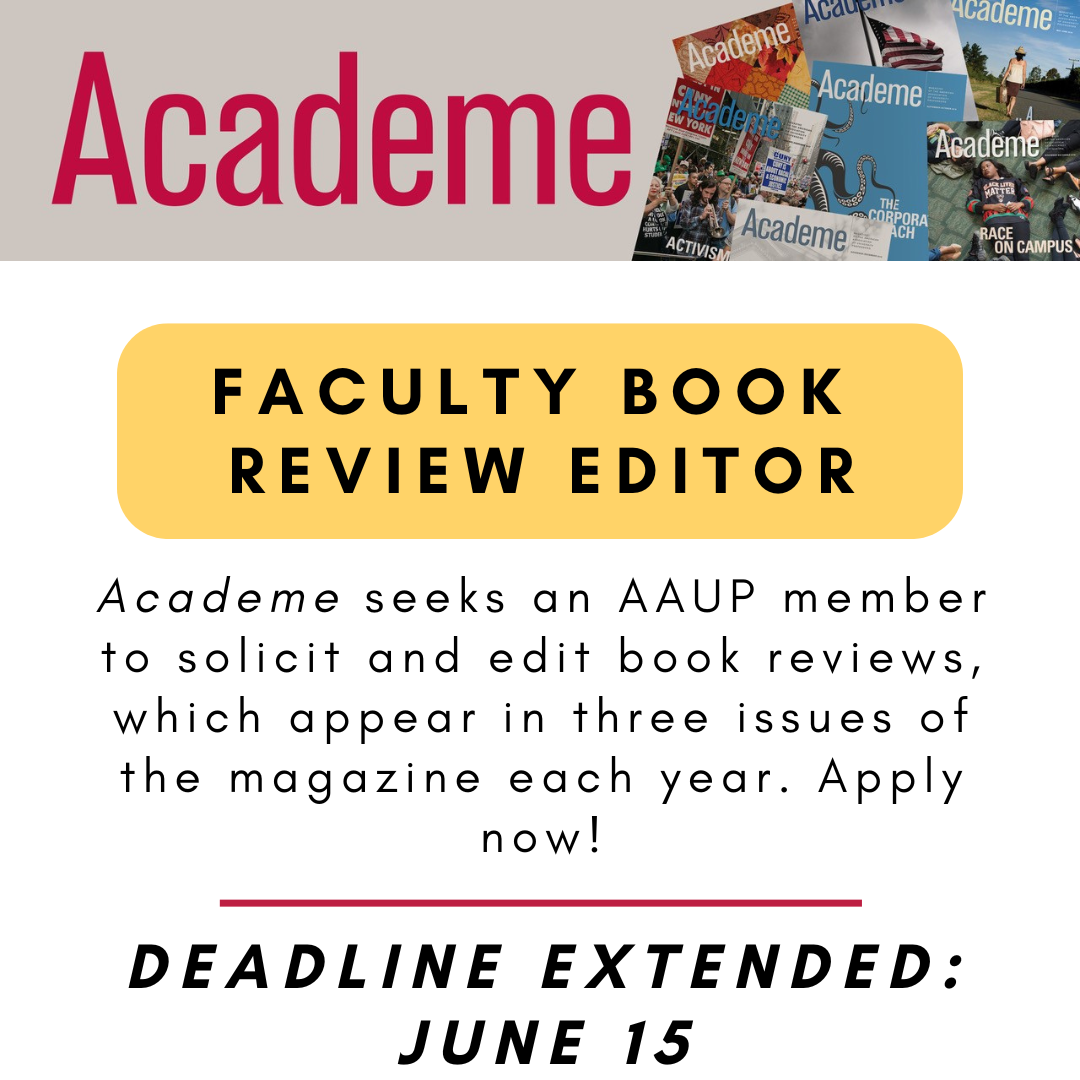- About
- Programs
- Issues
- Academic Freedom
- Political Attacks on Higher Education
- Resources on Collective Bargaining
- Shared Governance
- Campus Protests
- Faculty Compensation
- Racial Justice
- Diversity in Higher Ed
- Financial Crisis
- Privatization and OPMs
- Contingent Faculty Positions
- Tenure
- Workplace Issues
- Gender and Sexuality in Higher Ed
- Targeted Harassment
- Intellectual Property & Copyright
- Civility
- The Family and Medical Leave Act
- Pregnancy in the Academy
- Publications
- Data
- News
- Membership
- Chapters
Faculty Forum: Academia’s Failed Populist Revolt
A specter is not haunting universities—the specter of academic populism. The story of how the faculty has been deprofessionalized is well known. Rarely, however, has the professoriate’s contemporary plight been related to a major trend in global politics: the “populist revolt” underway since 2016.
A populist revolt of academics? The very notion seems oxymoronic. The construction of the “people” embedded in “populism” appears premised on hostility to the intellectual elitism often associated with professors. Yet trends in higher education suggest that faculty face conditions that, in other social realms, have triggered populist reflexes.
First, universities are riven by a divide between faculty and administration that increasingly resembles class conflict. As Chantal Mouffe argues in For a Left Populism, populist movements seek to construct a “political frontier between ‘the people’ and ‘the oligarchy.’” The growth of the “administrative university” has reinforced the perception that higher education is governed by an out-of-touch elite. This perception is partly related to compensation: presidents’ salaries at private universities have risen sharply, while at public institutions, presidents enjoy corporate-style perks unavailable to faculty. Administrators are increasingly professionalized, with their own niche associations and “best practices”; they even talk differently, using jargon that signals membership in a distinct caste. Populists’ contempt for insular elites parallels faculty resentment of administrators.
Like populists, faculty worry that their way of life is vanishing. As Roger Eatwell and Matthew Goodwin note in National Populism: The Revolt against Liberal Democracy, populist movements mobilize fears that a group’s identity is endangered. Most faculty members, of course, disdain populist demographic angst. But while the content of these anxieties may differ, their form is quite similar. Professors fear the destruction not of their nation but of their profession. Each of the pillars of the academic profession—tenure, academic freedom, and shared governance—now faces structural collapse. Three-quarters of the faculty are not on the tenure track. Contractually insecure professors hesitate to criticize university policies. Shared governance is a shadow of its former self. Even in the classroom, faculty judgment is second-guessed by assessment gurus and compliance officers. Far from inhabiting ivory towers, faculty members feel like exiles in institutions in which the premium on learning is only marginally greater than in the culture at large.
Francis Fukuyama has written about how a perceived lack of social recognition attracts people to populism. The professoriate has experienced a comparable diminishment. Traditional disciplinary mainstays, particularly the humanities and the social sciences, have been knocked off their pedestal by the emphasis on STEM and the health sciences. Various contemporary educational trends—an emphasis on quantifying “student success,” the emergence of student affairs departments as veritable viceregencies—have downgraded the faculty from its once central role. The salary stagnation or even decline that many professors have experienced since 2008 only reinforces this sense of diminished status. Isidor Rabi’s legendary rejoinder to Columbia University president Dwight Eisenhower— “the faculty are not employees of the university, they are the university”—has lost its self-evidence.
Amid rapidly changing educational technology, an emphasis on workforce skills, and a reluctance to invest in traditional universities, many professors feel jilted. Even so, they are unlikely to identify with populists. Most academics are instinctively—and rightly—hostile to populism’s most troubling tendencies, such as nationalism and xenophobia. An admirable desire to advocate for others makes professors uncomfortable promoting their own interest, even when the former depends on the latter. Professors are, moreover, naturally sympathetic to progress: they typically find arguments that promote “innovative” pedagogies more compelling than those that defend tradition, even when time-tested practices are in their professional interest. By their nature, faculty members are suckers for expertise: even the most ludicrous administrative fad might pass muster if it draws on “data.” Finally, solidarity does not come easily to professors: the incommensurability of different forms of academic work and its often-solitary character frequently undermine collective efforts.
The paradox of academia’s elusive populism is that many professors may be objectively pushed toward a movement to which they are constitutively allergic. Perhaps the time for a populist moment in academia has come.
Michael C. Behrent is associate professor of history at Appalachian State University.





